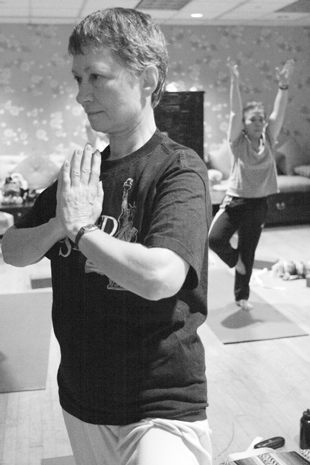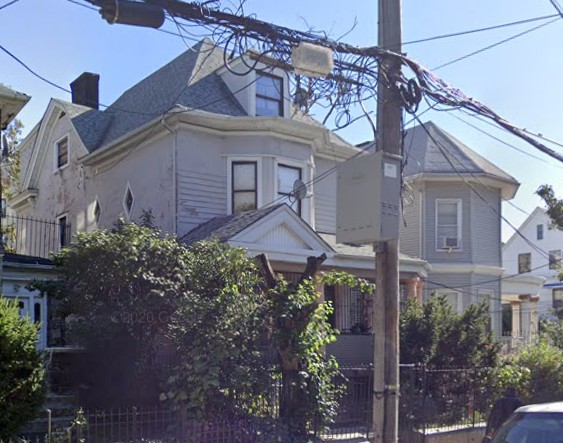By Bonnie Rosenstock
When Gilda Radner was diagnosed with ovarian cancer in 1986, she found a nurturing environment in the Wellness Community, a support center for people living with cancer in Santa Monica, Cal. When she traveled to New York (she was bicoastal), she couldn’t find that level of compassion and caring here.
After her death in 1989, just short of her 43rd birthday, her husband Gene Wilder contacted Radner’s psychoanalyst Joanna Bull, and together they created Gilda’s Club. He did the fundraising and outreach, and she developed the program — fulfilling Radner’s wish to establish a support community here.
Gilda’s Club opened in 1995 at 195 W. Houston St. In recognition of its 10th anniversary, Gilda’s Club and Radner, its guiding spirit, will be honored with a street co-naming, with a sign, Gilda Radner Way, on the southwest corner of W. Houston St. and Sixth Ave. The dedication will take place on Thurs., Sept. 15 at 11:30 a.m., and feature entertainment by the Broadway cast of “Hairspray,” followed by refreshments at Gilda’s Club.
Since its inception, the flagship Manhattan facility has spawned 18 clubhouses nationwide and one in Toronto, Canada. Each one is independent, with its own board and fundraising activities, except for the city’s two-year-old satellite program in Park Slope, Brooklyn. Over the decade, the Manhattan Gilda’s Club has received over 100,000 visits and has a member list of 4,000, which includes men, women and children, from 5 to 85 years old, with all types of cancers.
The membership process consists of attending an orientation with other people who are interested in becoming members, led by a volunteer. If interested, the person then signs up for a one-on-one interview with a licensed certified social worker, who will help the individual select from among the different programs which match his or her emotional and physical needs, coping interests or skills. There are support groups and networking groups (wellness, family, life after the individual’s death, specific cancers); workshops and lectures (yoga, knitting, art projects, Feldenkrais, journal writing); and social activities.
“We’ll see if there is a need and if there’s a group of individuals with that need, then we’ll start a group. We strongly believe our members can direct best what they need and how they can get those needs met,” explains social worker and Program Director Migdalia Torres. “We’re very member driven.”
Networking and support group participants share their experience with other group members, facilitated by social workers trained in the Gilda Way — creating an atmosphere of mutual support “where members are the experts because of their individual experience. It’s that exchange which helps build support,” emphasizes Torres.
In addition, there is a supervised playgroup (Noogie Nights) and a support group (Small Talk) for children whose parents or family members have cancer. They take place in the brightly decorated downstairs game-filled Noogieland, named after Radner’s hapless Lisa Loopner character on “Saturday Night Live,” who was the recipient of Todd’s (Bill Murray’s) “noogies,” or knuckle raps on the noggin. Noogieland, sponsored yearly by Toys ’R’ Us, will be overhauled in the next couple of months in order to accommodate children of different age groups.
Special interventions are also available upon request, such as Teen Convene, when a person needs to bring a teen and a network of friends and family together to help delegate responsibility when he or she can no longer take care of daily matters because of the side effects of treatment. Teen Convene has been held with as few as two people and as many as 35 people.
What makes Gilda’s Club unique and remarkable is that it’s a comprehensive emotional social support community, Torres points out. “We support the entire family, not just the individual with cancer, but also their family members, children, their extended friends. Anyone who is impacted by this individual’s experience with cancer can come here for support. They define who their family is. We don’t define it.”
The four-story W. Houston St. center is warm, cozy and inviting, thanks to the generosity and decorating talents of the team at “O at Home,” Oprah Winfrey’s interior decorating magazine, which redid the entire first floor lobby area, and Lowe’s Home Improvement, which made over the kitchen last year. “Surprise by Design,” a reality show on the Discovery Channel, redecorated four rooms with seasonal themes this year; and Ralph Lauren and Company, installed the plush earth-toned second-floor furnishings in the library/resource/Internet access room in 1995.
“We are a home, not a medical setting. It’s very beneficial for those who come here. However, when the bereavement group met in the summer room the day after it was redone, they found it too cheerful,” says Torres.
Gilda’s Club is also completely free. The annual operating budget is $1.6 million, three-quarters of which is raised at their yearly fall fundraising event. Wilder was very involved for the first five years, but has since remarried, experienced cancer himself and moved on. “We beg, we borrow. We never want economics to be a barrier to providing support. We will never ask our members for money,” Torres states.
Roseanne Roseannadanna, Radner’s big-haired, cavernous-mouthed lovable observer of life is an upbeat ubiquitous presence, painted on walls, peering around corners and brightening brochures. Her tag line, “It’s always something,” became the title of Radner’s inspiring autobiography about her struggle with cancer. At Gilda’s Club, there is even a special room with that name, where a member can close the door and have a private moment either alone or with somebody. There is always something extraordinary happening here.
For information about the programs and street naming, call 212-647-9700, or visit the Web site www.gildasclubnyc.org.





























